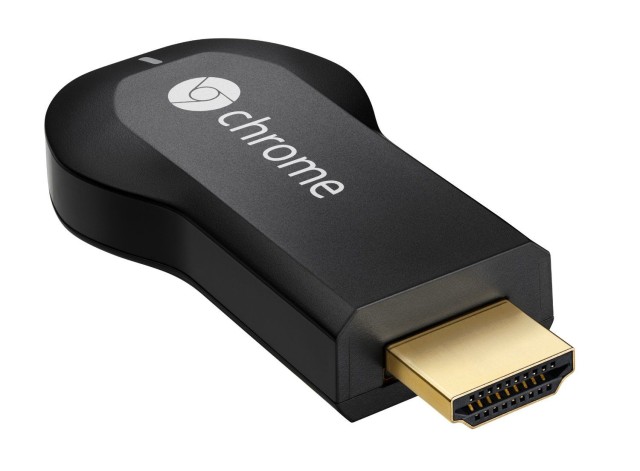Why Google Is Such a Great Hardware Company
Suddenly, Google is a major hardware company. And a surprisingly great one. But why?
I asked a Motorola executive involved in the Moto X project recently whether Google’s ownership of the company had any effect on their decision to get radical.
By radical, of course, I mean doing things no handset maker had ever done, such as make phones operate hands-free and build them to order in the United States for delivery in four days.
You’ll note that these and other radical attributes of the Moto X are options that would have been available to Motorola with or without Google. After all, the X8 Mobile Computing System that enables hands-free usage is Motorola’s, not Google’s, and was originally developed for Motorola smartwatches.
So why is Motorola suddenly radical now that Google owns the company?
The executive was reluctant to be specific. But he told me that hardware companies have to be obsessed with cost-benefit analysis. Because the stakes are so high, because it takes so long to get a phone to market and because they don’t know how the market will change between the time of decision and the time of shipping, they often choose not to do things that might be awesome for users. Shipping too many of the wrong thing, as Microsoft has learned with the Surface RT, can be financially devastating to a hardware company, even if you believe it’s a great product.
In other words, there’s always pressure to make prudent, practical and cost-effective decisions.
But with Google’s ownership of Motorola, the executive told me, the whole conversation changed. In a nutshell, Google loved these radical ideas and quickly killed any movement toward getting bogged down in a lengthy cost-benefit conversation.
Just do it, Google told them, and don’t worry about whether the costs will be recouped by hardware sales.
Google’s antipathy toward hardware has another curious effect — their products tend to have less of it. For example, the Chromecast looks more like a USB thumbdrive than a media box. They’re not trying to gussy up the perceived value of the hardware by making it seem like a big, valuable appliance.
Google’s Secret: They Don’t Care
Google is a great hardware company because they don’t care about hardware. They care about the experience users have with Google services.
It’s a subtle distinction, but one worth exploring. In order to maximize the usage and enjoyment of online services, you need fast-as-possible connection speeds, great screens and physical resilience and durability. In order to maximize the number of people having this great experience, you need low price.
When companies care about hardware, they do everything they can to de-commoditize the hardware and also make it profitable. But de-commoditization — making it different, even if those differences don’t make it better — isn’t an objective that will lead to the best user experience.
It appears that Google is de-emphasizing the trade-off between cost and benefit, and instead just focusing on the benefit, but that’s not really accurate.
In reality, the scale of Google’s services, and the revenue that those services generate, is massively larger than the scale of the hardware cost-benefit analysis.
By spending more on hardware that makes using Google services awesome, Google benefits financially by the increased use of those services. They sell more ads, mostly.
Just looking at Motorola’s X8 technology, built into the new Droids and the Moto X, you can see the Google calculation.
Google created one of the most incredibly useful and thrilling technologies ever — namely Google Now, which answers your questions (with answers, not just search results) and uses what it learns about you to alert you to opportunities and potential problems so you can benefit from personally relevant knowledge.
But using Google Now on a smartphone has ranged from difficult and inconvenient on some partner phones to pretty good on Nexus devices. Whatever additional costs or risks to be borne with enabling hands-free, high-speed, user-trainable Google Now usage are nothing compared to the benefits to both users and Google for wildly higher adoption and usage of Google Now.
Google’s ambivalence about hardware shines through in other ways. For example, along with the Moto X announcement, Motorola announced a new Chrome plug-in called Motorola Connect. The plug-in enables you to see who’s calling and texting your phone right there in your desktop browser — and even reply to text messages.
Hardware companies normally don’t do this kind of thing. They want you to use your phone for caller ID and text messaging, not your laptop.
But Google doesn’t care what hardware you use.
Yet another example is Google’s new Chromecast dongle. Come on, $35? There’s no way they’re making money on this. But Google doesn’t care about hardware, only services. So they can sell something super-cheap in order to drive the usage of services.
Google Has Never Cared About Hardware
Google’s origins at Stanford University were intimately tied to ambivalence about hardware. In the early days of the search engine company, one of the brilliant ideas founders Sergey Brin and Larry Page had was that hardware failure was not only something that could be managed by better software, but that money could be saved by allowing even more of it.
Google used the cheapest servers they could find to power the Google search engine. Rather than spend a fortune on bulletproof hardware, Google went in the other direction — they invested in a quantity of hardware, rather than quality, and made it work with better software that enabled systems to rapidly failover.
Google’s DNA from the beginning has been about maximizing usage of algorithmically enhanced Internet-based services and minimizing the centrality of the hardware required to use these services.
That was true when Google didn’t make hardware. And it’s true now that Google is flooding the market with hardware.
Not caring about hardware is what makes Google such a great hardware company.



